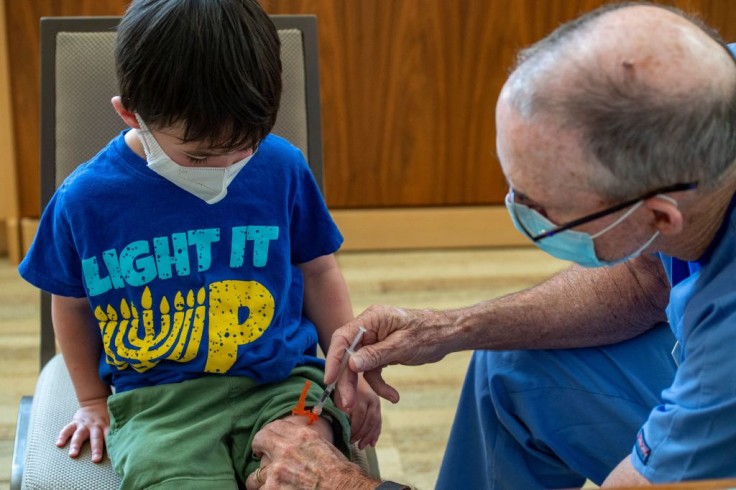
The rise in US school vaccine exemptions has been deemed by health officials as troublesome. The vaccine exemptions for children who are still in the developmental stages of their bodies can make them very vulnerable to diseases that are highly preventable by vaccines.
Medical experts are fearing the return of children's diseases like measles amidst the continuous rise in vaccine opt-outs.
Unprecedented Rise in US School Vaccine Exemption
The recent CDC reports revealed that in the 2022–2023 school year, the rate of exemptions for mandatory school vaccinations reached an unprecedented high in the United States, averaging 3.0%.
This increase, which sees over 5% exemptions in 10 states, poses a risk for both immunized and non-immunized children, raising concerns about the potential emergence of diseases like measles and polio, according to health experts.
Dr. Paul Offit, a prominent virologist and advocate for vaccinations, expressed his concern for the 9 million individuals in the U.S. who are unable to receive vaccinations due to underlying medical conditions, relying on the immunity of others for protection.
Unfortunately, it is recognized that with the onset of the COVID-19 pandemic, there has been an increase in legal actions attempting to reduce vaccine mandates, particularly those related to COVID-19.
These actions have also affected mandates for childhood vaccinations. An example of these legal precautions occurred in Tennessee in July 2021, where resistance to the COVID-19 vaccine began affecting standard childhood immunization policies.
This opposition led to the dismissal of Dr. Michelle Fiscus, the state's top medical official, and a temporary suspension of all youth vaccinations in Tennessee.
In May 2023, Tennessee implemented a law mandating written consent from a legal parent or guardian for anyone under 18 to be vaccinated.
There is concern among critics that this requirement for written consent could create a hurdle, potentially hindering access to necessary vaccinations for many children, especially those with compromised immune systems, like cancer patients, who need additional vaccine doses for adequate protection.
Measles Threat: Who Is at Risk?
Measles, often referred to as rubeola, red measles, or 10-day measles, is an infectious disease characterized by a fever and rash. Its high contagion is due to airborne transmission, typically when someone who is infected sneezes, coughs, or speaks.
Treatment for measles primarily involves letting the virus complete its course, as there isn't a specific medical remedy. Immunization is the key method of prevention against this illness.
The introduction of the measles vaccine has markedly decreased its occurrence, in stark contrast to the situation before vaccines were available. Despite this, the U.S. has witnessed a resurgence in measles cases in recent times, largely attributed to a decline in vaccination rates.
The inconsistency in vaccination not only affects people around a certain country, but this can trickle down to a global level as it can also be transmitted by peopl ewho travel abroad.
It's important to distinguish measles from German measles, also known as rubella, as they are different diseases.
Mississippi, despite facing higher-than-average rates of various health issues like obesity, diabetes, heart disease, and higher rates of infant and maternal mortality, is noted for its high rates of childhood vaccinations.
The CDC has recognized Mississippi for having the highest rate of vaccinated kindergarteners in the nation. However, there is growing concern among health experts that this achievement might be at risk due to a recent court ruling in July 2023 that allows for religious exemptions in vaccinations.
Healthcare experts are increasingly worried that the rise in exemptions for vaccinations not based on medical reasons might only be curtailed by outbreaks of diseases that mainly affect children.
Another example of this is the measles outbreak in Disneyland, California, from December 2014 to February 2015, highlighting the critical need to maintain strong and consistent vaccination programs.
What Parents Need to Know About Vaccines
Vaccines were invented in hopes it will diminish life-threatening diseases to spread. Despite the intensified vaccination programs and successfully lowering the cases of measles and polio, due to the increase in vaccination exemption in the US, they might possibly come back.
Furthermore, parents should inform themselves with the risks associated with not vaccinating children, underlining the potential for severe health consequences.